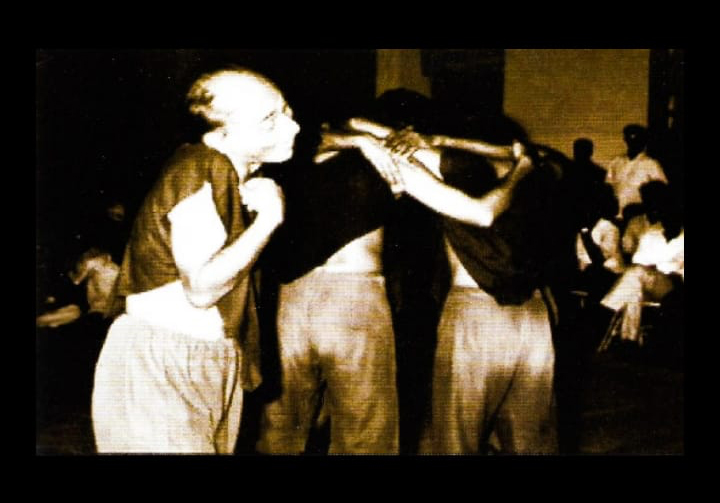Badal Sircar’s Bhoma

Image courtesy: Alkazi Theatre Archives
To celebrate the birth anniversary of Badal Sircar, the exponent of experimental and street theatre and the prime architect of Third Theatre in India, today the Alkazi Theatre Archives will look into the play Bhoma, first performed in 1975 by Sircar and his group, Shatabdi.
As recollected by theatre critic, Kavita Nagpal for India Today, Sircar, while introducing his play Bhoma during the National Drama Festival, 1977, said, “We want to make theatre as poor as possible and as suitable for the people of India as permissible. And while working in this direction we realize the incompatibility of the proscenium theatre. I am not here to condemn the proscenium, but I certainly feel that the full strength of the theatre remains unutilized within the confines of the proscenium arch.”
The group first encountered the story of Bhoma while they were on a performance tour in the Sunderbans. Tushar Kanjilal, the head master of the Rangabelia Village School highlighted to them the inhuman conditions of the indigenous community who cleared the Sunderbans for cultivation against all odds of nature and societal exploitations. One of them was Bhoma. Like many other productions of Shatabdi, the actors slipped into different roles, giving expressions to social issues than portraying a specific character. In the play, a forest, full of poisonous trees represents the society comprising people of opportunistic and oppressive attitude, and an indigenous woodcutter, who endeavours to cut down these trees, is seen in the form of Bhoma. In the end, fed up with the atrocities, he picks up is his ‘rusty axe’ and cuts down all the poisonous trees, growing around him. Although Bhoma is never seen in the play, his presence is reflected everywhere — every exploited soul of rural India is signified as Bhoma. Bhoma meddles with the rhythm of life of the urban and privileged household, of the middle class conscience of the city.
